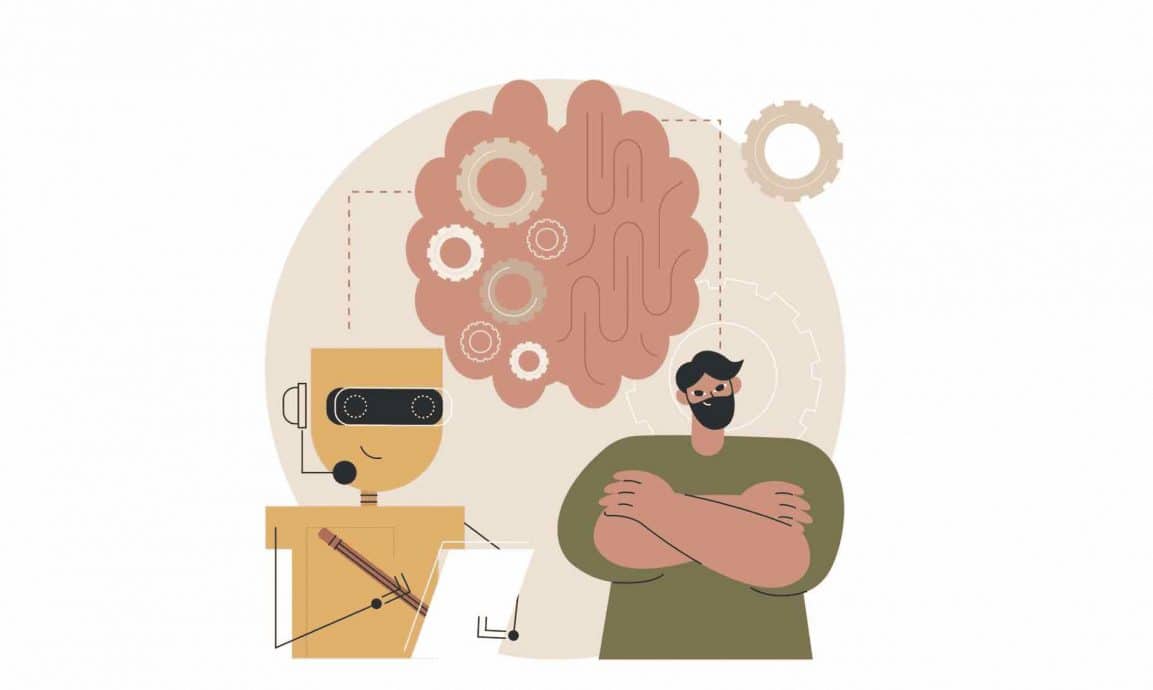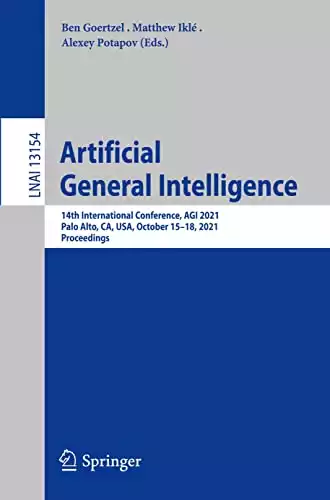How Has Artificial Intelligence Helped App Development?
Artificial Intelligence (AI) has rapidly become a critical component of modern app development. With its ability to process massive amounts of data, AI has revolutionized the tech industry. It has substantially impacted the way apps are developed and function. Today, AI-powered apps have become an integral part of our daily activities, making our lives more convenient and efficient.
As AI continues to advance and become more accessible, app developers are increasingly leveraging this technology. With it, they can create cutting-edge applications that offer unique user experiences. This article will delve into the various aspects of AI in app development. We’ll explore its advantages, opportunities, types of technology, and future trends.
Table of contents
- How Has Artificial Intelligence Helped App Development?
- AI-Powered App Development: Advantages and Opportunities
- Types of AI Technologies Used in App Development
- AI for User Experience: Enhancing App Performance and Responsiveness
- AI for App Personalization and User Engagement
- AI for App Security and Fraud Prevention
- AI for App Analytics and Business Intelligence
- AI for App Maintenance and Optimization
- AI App Development Process: From Concept to Deployment
- Future of AI in App Development: Trends and Predictions.
- References
Also Read: 14 Best Examples of AI Use in Everyday Life
AI-Powered App Development: Advantages and Opportunities
AI-assisted development has led to a plethora of advantages and opportunities in the app development space. By harnessing the power of intelligent systems, developers can create more efficient applications. Those will do a good job catering to the ever-evolving demands of users. These AI-powered apps have the potential to drive economic development by automating tasks. They will also provide innovative solutions to complex problems. Finally, they will make businesses more competitive in the global market.
One significant advantage of AI-powered app development is its ability to analyze vast amounts of data. This ability enables developers to make informed decisions and improve their products. By incorporating machine learning and deep learning systems, developers can create applications that learn from user interactions. Data-driven recommendations are also useful, ultimately enhancing user satisfaction.
AI also opens up new opportunities for developers to tap into previously unexplored markets. For instance, AI can be used to create applications for smart cities. It can enable better management of resources and improve the overall quality of life for citizens. The increasing integration of AI into various industries affects us all. Developers can access a wealth of new possibilities to create impactful applications.
Types of AI Technologies Used in App Development
There are several types of AI technologies commonly used in app development.
Machine Learning
Machine learning is a subset of AI that allows computer systems to learn from data without being explicitly programmed. Machine learning models analyze data and identify patterns. This enables applications to make predictions and generate recommendations based on user behavior.
Deep Learning
Deep learning, a more advanced form of machine learning, relies on neural networks to process vast amounts of data and make decisions. Deep learning systems can handle complex tasks such as image and speech recognition. It allows developers to create more sophisticated applications that can understand users on a deeper level.
Natural Language Processing
Natural language processing (NLP) is another essential AI technology used in app development. NLP enables applications to understand and process human language. It facilitates more efficient communication between users and applications. Developers can create applications that can interpret, analyze, and respond to user inputs in a human-like manner.
AI for User Experience: Enhancing App Performance and Responsiveness
AI plays a crucial role in enhancing app performance and responsiveness. The ultimate result is better user experiences and increased user satisfaction. Expert systems and technology systems create applications that are more intuitive and responsive.
One way AI improves app performance is by optimizing processing speed. As users interact with an app, AI algorithms can analyze their behavior and preferences. The AI will prioritize tasks and allocate resources more efficiently. This results in faster load times, smoother navigation, and a more enjoyable user experience.
AI also makes applications more accessible by incorporating features like voice recognition and natural language understanding. These technologies enable users to interact with the app using their preferred communication style.
AI for App Personalization and User Engagement
AI has become a vital tool in creating personalized app experiences and engaging users through customized content and recommendations. By analyzing human behavior and leveraging machine learning algorithms, developers can create intelligent systems and deep learning systems that cater to individual user preferences.
For instance, AI can analyze the content users engage with, their browsing history, and even their social media activity. This information can then be used to create personalized recommendations, advertisements, and notifications. Those will resonate with each individual user. By providing tailored experiences, AI-powered apps can increase user engagement. But it also does the same to enhance customer satisfaction and ultimately drive higher retention rates.
AI for App Security and Fraud Prevention
AI plays a significant role in app security and fraud prevention. Particularly when it comes to detecting unusual behavior and protecting sensitive user information. To do so, we need machine learning and guidance systems. Developers can create intelligent systems that continuously monitor user behavior. It will identify potential threats and take preventive action to ensure the security of the application.
For example, AI can detect anomalies that may indicate fraudulent activities. These include multiple failed login attempts or suspicious transactions. By identifying and addressing these issues in real time, AI-powered apps can provide a more secure environment for users and reduce the risk of data breaches.
AI for App Analytics and Business Intelligence
AI-driven analytics and business intelligence are crucial in helping businesses make better-informed decisions. With it, they can optimize their products. AI can integrate financial systems and process massive amounts of data. It can provide valuable insights into user behavior, market trends, and the performance of the application.
Application programming interfaces (APIs) and cognitive applications can be employed to collect and analyze data from various sources. User interactions, in-app purchases, and social media engagement are all helpful. By leveraging these insights, developers can identify areas for improvement. They can refine their marketing strategies and make more data-driven decisions that lead to success.
AI for App Maintenance and Optimization
AI is essential for app maintenance and optimization. It can help predict user behavior and identify potential issues. As such, you’ll continuously improve app performance. Machine learning, deep learning, and expert systems ensure that applications remain up-to-date and relevant in the ever-changing technological landscape.
For example, AI can analyze user feedback and app performance data to identify areas where the app may be lagging or experiencing issues. Developers can then address these concerns. The app’s overall performance and user experience will be enhanced. Moreover, AI can help optimize app features and layouts in a unique way. It will do so based on user preferences, ensuring the app remains engaging and user-friendly.
Also Read: Does My App Need Artificial Intelligence?
AI App Development Process: From Concept to Deployment
The AI app development process begins with conceptualization. That’s where developers identify the goals of the application. They must outline the necessary AI technologies required to achieve these objectives. During this stage, developers consider how ML, NLP, and technology systems will be integrated into the app.
Next, developers move on to designing the app’s architecture, user interface, and features. This involves selecting the appropriate AI frameworks, tools, and platforms. Those must align with the app’s goals and target audience. It’s essential to strike a balance between incorporating cutting-edge AI technologies and maintaining a user-friendly interface. After all, the primary goal is to cater to the target audience’s needs.
Once the design is finalized, developers proceed to the development stage. They bring the app to life by implementing the chosen AI technologies. Rigorous testing is conducted throughout the development process to ensure the app’s performance, security, and functionality meet the desired standards.
After the development and testing phases are complete, the app is deployed to the market. Post-deployment, it’s crucial to monitor user feedback and app performance metrics. It helps identify areas for improvement and ensures the app delivers exceptional user experiences.
Also Read: How is AI Used in Dating Apps?
Future of AI in App Development: Trends and Predictions.
AI continues to evolve and become more integrated into our daily lives. We can only expect that AI-driven app development will experience significant growth. Some trends and predictions for the future of AI in app development include the following:
- Smart cities: AI-powered apps will play a crucial role in developing smart cities. They should improve resource management and enhance the overall quality of life for citizens.
- AI-driven daily lives: As AI becomes more pervasive, it is expected to be integrated into various aspects of our daily lives. Hundreds of millions will use it for various aspects. Think of transportation and healthcare to entertainment and communication.
- Drug development: AI will likely play a more significant role in drug development. It already helps researchers analyze complex data and accelerate the discovery of new treatments.
- Financial systems: AI-powered apps will continue to transform the financial industry. Businesses can make more informed decisions, reduce risks, and optimize their operations.
- Integration of AI into various industries: As AI technology advances, it will increasingly be integrated into a wide range of industries. Widespread adoption creates new opportunities for app developers to create innovative applications that cater to the unique needs of these sectors.
Overall, the future of AI in app development holds immense potential for innovation and growth. As developers continue to harness the power of AI technologies, we can expect to see a new generation of applications. They will not only make our lives more convenient and efficient but also help address some of the world’s most pressing challenges. The future of AI in app development is bright and filled with endless possibilities.
References
Inc, Dash Technologies. “How Has AI Changed the Course of Mobile Application Development?” Dash Technologies Inc, 14 July 2022, https://dashtechinc.com/how-has-ai-changed-the-course-of-mobile-application-development/. Accessed 30 Mar. 2023.
TED. “How AI Could Empower Any Business.” YouTube, Video, 13 Oct. 2022, https://www.youtube.com/watch?v=reUZRyXxUs4. Accessed 30 Mar. 2023.


